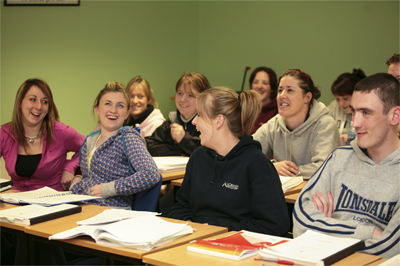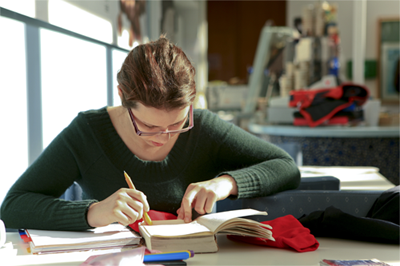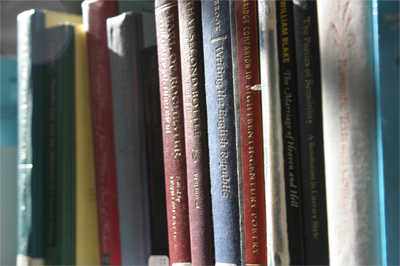-
Courses

Courses
Choosing a course is one of the most important decisions you'll ever make! View our courses and see what our students and lecturers have to say about the courses you are interested in at the links below.
-
University Life

University Life
Each year more than 4,000 choose University of Galway as their University of choice. Find out what life at University of Galway is all about here.
-
About University of Galway

About University of Galway
Since 1845, University of Galway has been sharing the highest quality teaching and research with Ireland and the world. Find out what makes our University so special – from our distinguished history to the latest news and campus developments.
-
Colleges & Schools

Colleges & Schools
University of Galway has earned international recognition as a research-led university with a commitment to top quality teaching across a range of key areas of expertise.
-
Research & Innovation

Research & Innovation
University of Galway’s vibrant research community take on some of the most pressing challenges of our times.
-
Business & Industry

Guiding Breakthrough Research at University of Galway
We explore and facilitate commercial opportunities for the research community at University of Galway, as well as facilitating industry partnership.
-
Alumni & Friends

Alumni & Friends
There are 128,000 University of Galway alumni worldwide. Stay connected to your alumni community! Join our social networks and update your details online.
-
Community Engagement

Community Engagement
At University of Galway, we believe that the best learning takes place when you apply what you learn in a real world context. That's why many of our courses include work placements or community projects.
School of Psychology
School of Psychology
Welcome. The School of Psychology is housed in a purpose-built facility in the centre of campus. We are dynamic, innovative and recognised for our teaching, research, and community contribution. We have a suite of professionally accredited undergraduate and postgraduate (Higher Diploma, Masters and PhD) programmes. We also have two active and successful research streams: Brain & Behaviour, and Health & Wellbeing. Researchers from both have participated in acquiring major national and international funding awards and we continue to develop a strong profile in quantity and quality of research output.
Latest University News
14 May 2024
Secondary Schools Cookbook Competition at University of Galway
Transition Year Students from DEIS and Link post-primary schools in the border, midlands and western region have taken part in the final of the Uni4U+ College Cookbook Competition at University of Galway.
The students were tasked with coming up with five dinners for one person – all for less than €35 per week. Students were also required note if the recipe was high in protein, low in calories, vegan friendly, coeliac friendly and so on.
The recipes were judged by chef, restaurateur and author, Dr JP McMahon, who said: “For me, it’s really important to show young students the different opportunities there are to get them into university but also to get them interested in cooking.”
The winners included:
Overall Individual Entry: Ashton Greer from Coláiste Muire Máthair, Galway City
Overall Group Entry: Joe Sullivan, James Murray, Seoijin Lee and Krzysztof Kotarba from Coláiste Muire Máthair, Galway City
Best Design: Jaynel Almanzar Cordero, Coláiste Muire Máthair, Galway City
Most Creative Recipie: Iarla Ó Brádaigh, Aodháin Ó Donnchadha, Ciarán Dwyer and Diarmad Ó Fátharta from Coláiste Cholmcille, Inverin, Co. Galway
Most Nutritious Recipe: Aedín Ní Chualáin from Scoil Chuimsitheach Chiaráin, Carraroe, Co. Galway
Most Budget-Friendly Recipe: Amelia Dlugoskecka from Roscommon Community College
Roscommon Community College student Amelia Dlugoskecka said: “The whole competition got me really interested in nutrition and it’s something I will consider doing in the future.”
The Uni4U+ Programme gives secondary school students the opportunity to visit University of Galway’s campus and gain an insight into university life and is an integral part of the outreach work undertaken at the University of Galway Access Centre.
Speaking about the project, Dr Mary Surlis, Senior Academic Manager at University of Galway’s Access Centre said: “Our outreach work is core to the Access Centre’s regional commitment, to both our DEIS schools and the wider communities. Our primary aim is to design creative interventions in these areas, which promote accessibility to higher education by informing, empowering, and inspiring all. This event epitomises such work.”
For further information on the work of the Access Centre, head to Access Centre - University of Galway.
Ends
7 May 2024
Advanced technology offers revolutionary coronary care
Harnessing AI would enable advancement of cardiovascular care for millions, with greatest impact in the developing world
Pioneering technology offers physicians more accurate understanding of heart condition, leading to better patient outcomes
A world-leading interventional cardiologist and researcher at University of Galway has called for a revolutionary change in healthcare – with artificial intelligence, machine learning and virtual reality to be used to better diagnose and treat cardiac patients.
Professor of Interventional Cardiology William Wijns, along with international colleagues from China, Italy, Switzerland and the USA, is urging the adoption of the most advanced technologies to empower clinicians to uncover previously concealed information within a coronary angiogram.
Professor Wijns made the call in a specially commissioned article in Nature Review in Cardiology.
In the paper, Professor Wijns emphasised the limitations of relying solely on traditional visual angiographic guidance for diagnosis and treatment of coronary artery disease. He cited previously published research which showed that diagnosis and treatment through the cardio-angiogram led to inappropriate stenting and overtreatment in 37% of patients; that 30% of interventional procedures are deemed unnecessary; and 20% are found to be needed but not performed.
Stenting, although a common procedure, comes with potential problems to the patient, such as restenosis, thrombosis, damage to blood vessels and other risks. When the cardiologist uses angiographic images to precisely navigate catheters through arteries, results are not always optimal - about 50% of patients end up with suboptimal functional outcomes, leaving them vulnerable to further heart issues in the short and long term.
Professor Wijns explained: “It is time for a paradigm shift in how we diagnose and treat coronary patients. We have good evidence that a new approach, taking into account the unique physiological characteristics of each patient’s heart, allows for more precise and effective treatment decisions. By integrating advanced technologies, such as artificial intelligence, into the interventional procedures, physicians can obtain a more accurate understanding of the heart's condition, leading to better patient outcomes, reducing the risk of adverse events, and preventing subsequent problems.”
Research contends that recent advances in AI, machine learning and virtual reality can empower interventional cardiologists to uncover previously concealed information within a standard cardio-angiogram. This additional information holds significant implications and advantages for patients, providing a deeper insight into their individual condition. Blockages in smaller blood vessels in particular can also now be uncovered from image based AI.
This new approach enables a more tailored response and treatment approach. This advancement will enable physicians to refine patient treatments, resulting in enhanced interventions compared to traditional angiograms, that don’t use AI assistance.
Professor Wijns continued: “While the integration of artificial intelligence into coronary disease diagnosis and treatment planning represents a significant step forward in boosting accessibility on a global scale, it has never been more important to increase access to resources. Our new approach is refining the understanding of how blockages and other obstacles are impeding normal blood flow to the heart. Enabling access to this AI-led approach will advance cardiovascular care in emerging nations, bridging the gap with the first world and fostering substantial global impact, while also decreasing differences in quality of care in centres in the developed world.
“Additional research is currently underway to validate the effectiveness of these new strategies, and we are optimistic about the potential to revolutionise care of coronary artery disease and improve the lives of millions of patients worldwide.”
The paper can be accessed here: https://doi.org/10.1038/s41569-024-01014-0
Ends
7 May 2024
Industry and academia explore AI, cyber security and cloud computing
University of Galway marks 10th anniversary of itag innovation
Industry and academia are to come together to explore tech issues around cybersecurity, AI, cloud computing and empowering communities as part of this year’s AtlanTec Festival.
University of Galway and non-profit enterprise association itag - Innovation Technology AtlanTec Gateway – will mark 10 years of collaboration and innovation at a one-day event with informative, practical and engaging displays of the latest technology developments that impact both society and the workplace.
Taking place on Thursday May 16th, the annual AtlanTec Festival Conference is one of the highlights of the 10th annual AtlanTec Festival, which kicks off in Galway today.
The event - Connecting Communities through Technology Innovation - is expected to attract more than 300 delegates and includes international speakers and the region’s tech companies.
Canada-based author and futurist Peter Scott, who hosts the weekly podcast “AI and You”, will deliver a keynote address, dissecting the role technology plays in modern-day life. Querying whether technology is serving us or whether we serve technology, his talk will challenge attendees to view AI not merely as a tool, but as a catalytic force capable of shaping not only a productive but meaningful future of work.
Other speakers will include Dr Mamoona Asghar from University of Galway’s School of Computer Science who will discuss cyber security and modern social engineering attacks and Laura Brodahl, Senior Associate at Wilson Sonsini, who will discuss the future impact on business of Europe’s new AI Act which will regulate aspects of this evolving technology.
Andrew Ayres, Master Strategist for Hewlett-Packard Enterprise, will provide insights into the methodologies behind AI-driven analytics and the pivotal role they play in informing strategic business initiatives.
The conference is backed by University of Galway’s Innovation Office, which supports industry academic collaborations and start-ups.
Professor Jim Livesey, Vice-President Research and Innovation at University of Galway, said: "We are thrilled to host itag’s AtlanTec Conference Connecting Communities through Technology Innovation. This conference serves as a platform for academia and industry to draw inspiration from each other and collaborate to capitalise on the transformative potential of technology - resulting in building stronger, more interconnected communities.”
itag Board Chair and Senior Vice President, Fidelity Investments, Sharon Walsh said: “The AtlanTec festival has been pivotal in the advancement of the technology community here in the west of Ireland for the past 10 years. Through the ongoing support of our members and University of Galway, the annual conference brings together people and companies redefining the global tech industry. We connect through discussion, active listening and ideation on the most relevant tech industry developments that will shape our future work.”
For more information on the conference and to register, visit www.atlantec.ie
Ends






















